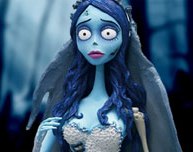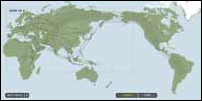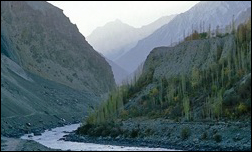 I know you were brought in late on [Tim Burton’s Corpse Bride](http://imdb.com/title/tt0121164/)
I know you were brought in late on [Tim Burton’s Corpse Bride](http://imdb.com/title/tt0121164/)
and from what I gather, weren’t responsible for much
of the story, but I’m curious about your thoughts on
one particular story element.
Is the ending a happy one for Victor?
The way it plays, it seems as though it is intended to
be a happy ending for him when he winds up with
Victoria, but from the audience’s perspective, I’m not
sure we see evidence that he would be happier with
Victoria than he’d be with the Corpse Bride. The
inclusion of the scene where Victor connects with the
Corpse Bride while playing piano with her is of course
necessary to propagate the plot, but seems to indicate
that he’d be just as content living among the dead as
he would be with Victoria.
— Rob
Los Angeles
You point out one of the real challenges with Corpse Bride. Generally in a fairy tale like this, you’d be really clear about which woman the hero is “supposed to” be married to at the end.
At the start of the movie, it seems pretty straightforward: Victor meets Victoria, and both of them are surprised how much they like each other. Corpse Bride seems like a monster when she first appears, but is quickly revealed to be funny and sweet. She’s rotting, but not rotten.
As we worked on the story, Corpse Bride kept becoming more and more likable, to the point where we started to wonder exactly the question you ask, “Shouldn’t, maybe, Victor end up with Corpse Bride?”
The solution wasn’t to diminish Corpse Bride, but rather to beef up Victoria. Over the drafts, we made sure to give her more initiative (such as escaping the mansion to plead for the Pastor’s help) and make her situation more dire (the wedding to Barkis was a surprisingly late addition).
Through it all, we never wanted to back away from what was unusual about the story: it’s a love triangle in a kid’s film, and you’re sort of rooting for all three characters.
Corpse Bride’s decision to stop Victor from drinking the Wine of Ages (added in the last draft) is less about saving his life (after all, death isn’t so bad) and more about seeing herself in Victoria. It goes back to want-versus-need. Corpse Bride wants to be married, but what she needs is to free herself from her self-imposed curse. While we’re deliberately unclear about the exact cosmology of the afterlife, the Land of the Dead seems to be a kind of goofy Purgatory. Her transformation at the end would seem to be the next step in the process of life.
But is it a little wistful? Yeah.
And I wonder if that lack of clearly happy ending limited the upside to the film — which I have to say, performed much better than any movie called “Corpse Bride” could be expected.
But I wouldn’t change it. To me, it’s nice to be able to show kids a movie where everything resolves well but not perfectly. I think it’s more honest to show that you can be happy and sad at the same time.
 My last normal job — the 9-to-5 kind — was as an assistant at [Oliver Stone’s](http://imdb.com/name/nm0000231/) production company. At the time, he was in post-production on [Natural Born Killers](http://imdb.com/title/tt0110632/), and developing future projects, one of which was a remake of Planet of the Apes.
My last normal job — the 9-to-5 kind — was as an assistant at [Oliver Stone’s](http://imdb.com/name/nm0000231/) production company. At the time, he was in post-production on [Natural Born Killers](http://imdb.com/title/tt0110632/), and developing future projects, one of which was a remake of Planet of the Apes. For instance, my ancestors travelled through the Pamir Knot, which I’d never heard of. But looking at the picture, you realize that somewhere back in history, some relative lived there. Hunted there. Died there. It was 40,000 years ago, but it’s still in my blood.
For instance, my ancestors travelled through the Pamir Knot, which I’d never heard of. But looking at the picture, you realize that somewhere back in history, some relative lived there. Hunted there. Died there. It was 40,000 years ago, but it’s still in my blood.